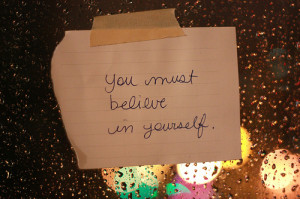Fear of people is more than an emotion. It’s actually a psychological condition, also known as anthropophobia, similar to shyness and social phobia. A person with this condition is afraid both of interacting with and being around other people.
The fear of people is more intense than shyness. The person with anthropophobia doesn’t just feel a bit of nervousness what chatting with someone. They are considerably afraid, and this intensity of emotions makes their condition more similar to social phobia.
But it is also different from social phobia in the sense that while someone with social phobia feels anxiety in social types of situations (for example, when being in a group, or talking to unfamiliar people, or speaking on stage), someone with anthropophobia feels anxiety when dealing with people in general, including people they’ve know for a long time, individually. So the range of the emotion is broader.
Predictably, the fear of people is a highly debilitating condition. A person who fears others in general finds it hard to interact with anyone and is unable to develop meaningful interpersonal relationships. And considering the crucial role positive social interactions and relationships play in our life, it’s unavoidable that this person frequently feels lonely, depressed and unfulfilled as a result of lacking these elements in their own life.
Symptoms and Causes
If you believe you or someone you know may suffer from anthropophobia but you’re not sure, a better understanding of this condition’s symptoms will probably clarify this for you.
Besides the obvious state of anxiety when dealing with others, there are several common symptoms of suffering from the fear of people. Individuals with this condition:
- Feel strong anxiety in anticipation of a social interaction or event, often days in advance;
- They typically have trouble holding eye contact with others, even with familiar people;
- They often feel nausea or sickness when interacting with others or being around others;
- Intense sweating, skin pallor or blushing are also common when dealing with other people;
- They have constant thoughts of self-doubt and self-criticism when in social settings;
- They avoid social events and interpersonal interactions, and often they even just avoid leaving the house;
- They find the mere presence of other people highly energy draining, and talking with people even more so.
- They seriously struggle with making conversation and being friendly with others.
What causes anthropophobia? It is believed that genetic predispositions do play a role, but it is not the dominant one. Early traumatic events from childhood regarding relating to people are often at the root of anthropophobia, but not always.
 Personally, having coached multiple individuals with anthropophobia and studied a lot of the psychological research on this subject, I consider that multiple causes comes into play, but the most important one concerns negative experiences relating to others.
Personally, having coached multiple individuals with anthropophobia and studied a lot of the psychological research on this subject, I consider that multiple causes comes into play, but the most important one concerns negative experiences relating to others.
Sometimes these could be a few traumatic experiences dealing with others, other times they could be a lot more non-traumatic but still unpleasant experiences, other times it’s a combination of the two.
In any case, these negative social experiences, perhaps on a background of above average emotional sensitivity, make the person develop a very negative perception of people and interpersonal situations.
At a conscious or subconscious level, they have come to believe that other people are a threat to them, that they will judge them and hurt them. They have come to see themselves as unlikeable and inclined to attract the antagonism of others, and social settings as dangerous for them.
Thus, they fear people and they try to avoid them as much as they can. This is the only way they can feel safe. But sadly, this also makes them completely isolated socially and ultimately very unhappy with their lives.
How to Overcome the Fear of People
The good news is that the fear of people can be overcome. The fact this fear can be so intense and all-encompassing is not in any way an indicator that’s its permanent. With proper guidance and with some consistent work, you can stop fearing people and learn to enjoy social interactions.
In order to achieve this, what you need is to develop new, more constructive thinking habits regarding people and your relation to them. As these new ways of thinking skink in, your fear of people will dissipate.
In my experience as a confidence coach, there are two types of interventions that work in learning this new type of thinking habits.
1) Progressive Exposure. When you fear people, you are inclined to avoid them. Unfortunately, this only keeps the fear alive. In order to overcome it, it’s crucial to do the very opposite and expose yourself to social settings and interpersonal interactions more.
This process needs to be progressive in order to work well. You start small, with exposure to social situations that generate a relatively small amount of anxiety, and you advance steadily. Progressive exposure essentially acclimatizes you with dealing with people and thus it becomes comfortable.
2) Correcting Your Thoughts. In addition to progressive exposure, it’s also important to directly address those negative thoughts that make you fear people. This implies noticing them when they appear, recognizing what’s faulty about them and replacing them with more rational thoughts.
Essentially, you need to consciously practice thinking in a more constructive way. And with practice, this news way of thinking overpowers the old one and becomes second nature. And so the fear dissipates.
If you wanna learn more about this proven process for overcoming the fear of people and how to use it, I suggest you watch this instructional video where I go into more detail. The information I share in it is gonna be very valuable to you so make sure you watch it.
Qualified assistance in overcoming anthropophobia constantly proves very helpful. If you can work with a competent psychologist or psychotherapist or coach, you’ll make much faster progress and the whole process will be much easier.
At least, I recommend you join my free social confidence newsletter, where I will share with you more practical advice for triumphing over anthropophobia and act as your online guide in this process.
In closing, I encourage you to bear in mind that the fear of people is something you’ve learned. And anything that you can learn, you can unlearn. It’s easier said than done, but with effective action and perseverance, it can be done.
And it’s more than worth it. When you stop fearing people, you are able to get out of the house more, meet people, talk to them, make friends, build fulfilling relationships and have a great time with others. Your life will never be the same.
Image courtesy of David Ingram
 Why is this? Here’s the explanation.
Why is this? Here’s the explanation. Not being serious about gaining confidence isn’t necessarily a bad thing. Maybe your level of confidence is actually pretty good, and there are just some specific areas where your confidence is a bit lacking. And this lack of confidence isn’t really affecting your life that much, so it’s hard to gather the motivation to do the work required to gain more confidence.
Not being serious about gaining confidence isn’t necessarily a bad thing. Maybe your level of confidence is actually pretty good, and there are just some specific areas where your confidence is a bit lacking. And this lack of confidence isn’t really affecting your life that much, so it’s hard to gather the motivation to do the work required to gain more confidence. Social skills and social confidence go hand in hand. In fact, what often seems like a lack of social skills is only a lack of social confidence. You just feel nervous around others and this makes you act rather awkwardly.
Social skills and social confidence go hand in hand. In fact, what often seems like a lack of social skills is only a lack of social confidence. You just feel nervous around others and this makes you act rather awkwardly. A big component of feeling self-conscious is the fact your attention is focused on you. But if you deliberately shift your attention away from you, on other people or on the environment, you’ll immediately begin to relax.
A big component of feeling self-conscious is the fact your attention is focused on you. But if you deliberately shift your attention away from you, on other people or on the environment, you’ll immediately begin to relax.
 1. Many women will simply not be completely honest. They’ll tell the guy what he wants to hear or what will make them look good rather than
1. Many women will simply not be completely honest. They’ll tell the guy what he wants to hear or what will make them look good rather than  I know that you may want to find a way to not be socially inept anymore and afterwards go out and socialize, but unfortunately, it doesn’t really work that way. It works the other way around.
I know that you may want to find a way to not be socially inept anymore and afterwards go out and socialize, but unfortunately, it doesn’t really work that way. It works the other way around. William Shakespeare once said (in Hamlet, to be more precise): “There is nothing either good or bad, but thinking makes it so“.
William Shakespeare once said (in Hamlet, to be more precise): “There is nothing either good or bad, but thinking makes it so“.